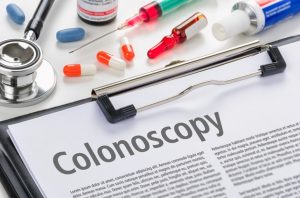Why Is A Colonoscopy Performed?
 When you reach a certain age, your doctor might recommend having a colonoscopy. This procedure helps detect colon cancer early, but it has other uses as well.
When you reach a certain age, your doctor might recommend having a colonoscopy. This procedure helps detect colon cancer early, but it has other uses as well.
What Are Reasons To Get A Colonoscopy?
If you are at least 50 years old and have an average risk of getting colon cancer, your doctor will recommend that you have a colonoscopy done. In fact, you should have this procedure done about every 10 years. However, you’ll need to have it done more often if you have a higher risk of getting colon cancer. A colonoscopy is typically used to detect colon cancer, but it can also be done in order to determine the cause of any changes in your bowels or pain and other symptoms that affect your abdomen. If you suffer from unexplained weight loss, diarrhea or constipation, you might also need to have a colonoscopy done to find out why this is happening.
How Is a Colonoscopy Done?
A colonoscopy involves inserting a thin, tiny camera into your colon to determine if you have any abnormalities or areas of concern. You might be given a sedative before this procedure is done to help you stay calm. During the procedure, the camera is carefully guided through your rectum and into your colon. When the camera is inside your colon, carbon dioxide might be used to inflate it for clearer views. This camera produces images that your doctor will examine. In some cases, doctors take a tissue sample in order to perform a biopsy. If you have polyps, these might be removed during your colonoscopy.
Preparing for a Colonoscopy
Having a colonoscopy done requires you to get your bowels ready. You can expect to do this through dietary changes one to three days before your colonoscopy. The changes you might have to make typically involve switching to a clear liquid diet that includes broth, juice with no pulp, sports drinks, black coffee, plain tea and gelatin. You might also have to stop taking blood thinners or other medications if they might have an effect on your colonoscopy. Preparing for this procedure might also involve taking a laxative or using an enema to clear out your colon.
After Your Colonoscopy
After you have a colonoscopy done, it’s common to have some bloating and gas from the carbon dioxide. This should only happen for a couple of days. You might also have a small amount of blood in your stool. You should let your doctor know right away if you have any abdominal pain, a fever, blood clots or blood in your stool that does not go away, since these could indicate an infection or other complications. When your colonoscopy results are ready, your doctor will discuss them with you and recommend any additional testing if needed.
Is a Colonoscopy Safe?
A colonoscopy is a routine procedure that provides an important step in finding and treating colon cancer as early as possible. This procedure is generally considered safe for most patients. Complications can occur, but they only do so in rare cases. These complications include tears inside the colon or rectal wall, bleeding if tissue sample is taken or reactions to sedatives.
If you need to have a colonoscopy done, please contact Gramercy Park Digestive Disease Center to schedule an appointment.


